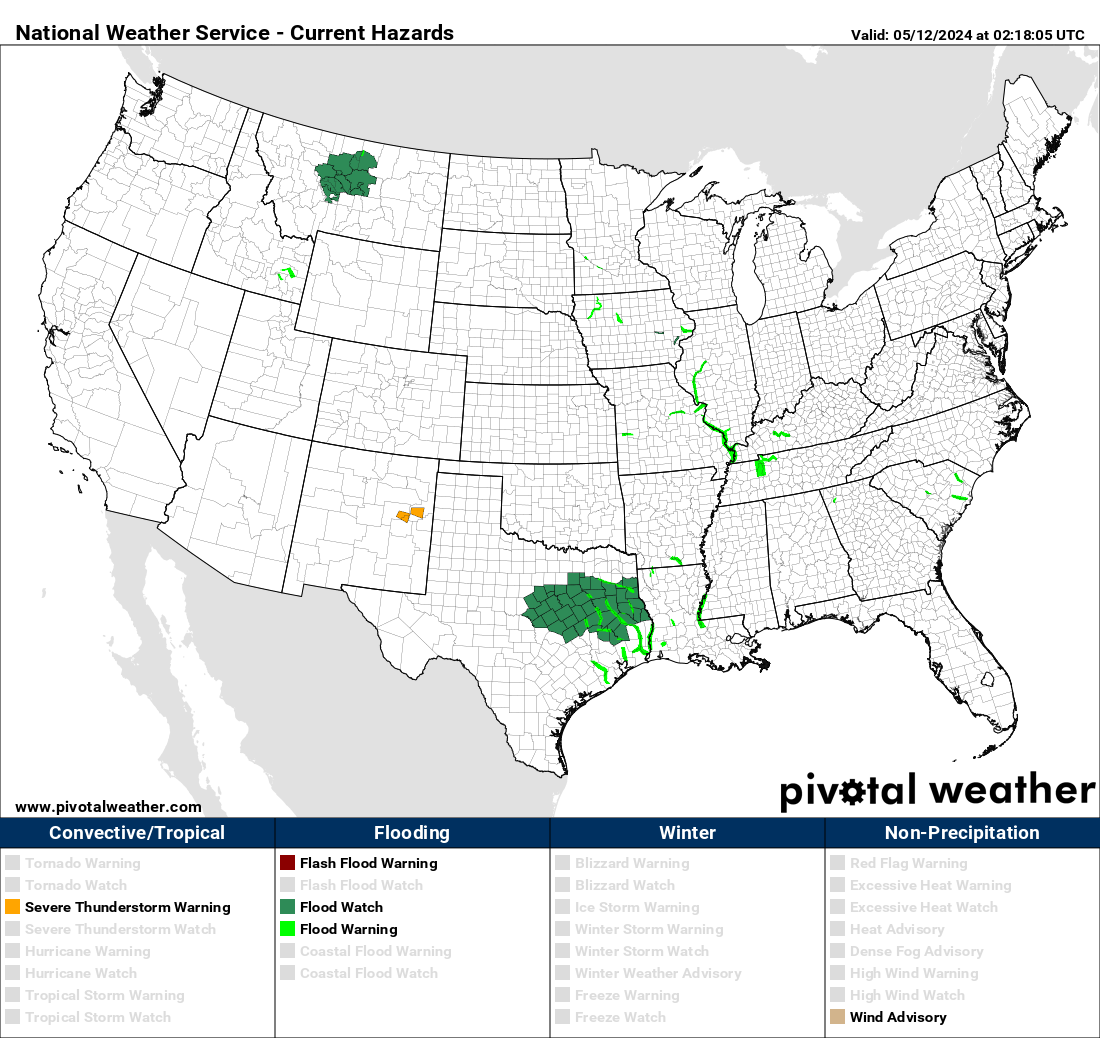Post by mrjamie on Jan 10, 2009 19:07:30 GMT -6
This is a good write up. Citicard, Chase, American Express and Bank of America all are raising rates. You can opt out and keep the lower rate until you card expires but everyone might want to think about this before hand. If you opt out, your account will be closed.
riverjournal.com/vivvo/News/488.html
Check Your Credit Cards, You May Need a Bailout Too
Are American banks trying to dig themselves out of the hole on the average American's back?
The economy is in trouble. It’s been hard to miss that news as it’s the leading story almost every day in both television and print. As of December, American taxpayers have been committed to more than $4.6 trillion in loans to troubled businesses. And the line of those with their hands out is just beginning.
Although banks have figuratively gone to the taxpayer with hat in hand to beg, “Please, sir, I want some more,” the role they seem to have cast for themselves recently in this Dickensen financial melodrama is more in keeping with the board members of the poor house when dealing with those same taxpayers who are customers.
Have you opened your credit card statement lately? Many have, only to be shocked to find the rates on their credit cards have climbed astronomically—in some cases, more than 100 percent.
Marie (not her real name) is a case in point. Marie pays her bills on time, always. She pays more than the minimum payment on her credit cards, and manages her money wisely. This is reflected in her credit score, which, at 740, means she scores better than half the country. That didn’t stop Bank of America from raising the APR on her credit card from 8 percent to 18 percent on her last statement. “I was shocked,” she said. “I’ve never paid any of my bills late. When I called to find out why they had raised it, their answer was basically because they could.”
The next month, her Chase credit card did the same thing.
Marie is not alone, and this is not a recent phenomenon. Back in February of this year Business Week, in an article on Bank of America’s practices entitled “A Card You Want to Toss” quoted William Ryan, a financial industry analyst at a New York-based research firm, as saying, “Congress has faulted credit-card companies for lack of transparency in raising rates. Bank of America is bringing it to a new level.”
Now, most other companies are joining Bank of America in raising interest rates because they can... and because they need to. Sanjay Sakhrani, a senior vice president and analyst covering the specialty finance sector at Keefe Bruyette and Woods, says, “This is an industry wide trend. As the economy weakens, this is a way for them to make up some of the losses.” CNN Money reported they were told by a Bank of America spokesperson that, “the bank’s fine-print provision for “market conditions” doesn’t refer to the economy at large, but notes that “the current situation might cause us to take a more aggressive look at accounts.”
Credit card companies often increase rates even when you pay your bill on time; the universal default provision, for example, allows the company to change your terms at any time based on your use of other lines of credit. But CNNMoney reported that “when the Fed asked lenders in its most recent quarterly survey why they would tighten standards, 98 percent of responders blamed a less favorable economic outlook. They’re saying, the economy is getting bad, and our earnings are under pressure—so we can change your account.”
USA Today reports some of the same practices that created the banking crisis are also behind a future crisis in credit cards, a crisis companies are seeking to stave off with drastic increases. Most at fault? Securitization. “From 2003 to 2007, seven of the largest issuers of credit cards packaged an increasing amount of card debt into securities and sold them to investors, just as banks did with mortgages, a USA TODAY review of banking records found,” they reported. “When banks package and sell card debt, they pass along to investors some of the risk the debt will go bad. Yet, banks often get to pocket much of the profit from rate and fee increases on those accounts. Imposing higher fees on more accounts—without a comparable rise in risk—lets banks raise revenue and keep profits up, at customers’ expense.”
These practices have not gone unnoticed by federal regulators, which may be why more and more “good customers” are seeing changes in their rates at the worst possible time; companies are enacting these increases while they still can. The Treasury Department’s Office of Thrift Supervision, which oversees and regulates certain savings institutions, along with the Federal Reserve (oversight of banks) and the National Credit Union Administration, (oversight of credit unions) have adopted new rules which will drastically effect a company’s ability to increase costs to consumers. These regulations would (among others):
• Bar issuers from raising interest rates on existing debt, except under certain conditions, such as when a promotional rate expires or when a borrower pays 30 days or more late.
• Prohibit issuers from calculating one month of finance charges based on two months’ worth of activity, a punitive practice called double-cycle billing.
• Require card issuers to apply monthly payments that exceed the required minimum at least partly to higher-rate card debt. Borrowers often face varying interest rates on credit card debt, for cash advances, balances transferred and purchases.
The drawback? The rules don’t go into effect until July 2010. Travis B. Plunkett, legislative director of the Consumer Federation of America, called this a “notable problem.
“The number of consumers falling behind on payments is increasing, so it’s just not helpful to consumers to give companies the green light to keep using practices that the Fed acknowledges are unfair and deceptive for an extra 18 months,” he said.
It’s possible that Congress may speed up the process as it looks to adopt legislation of its own, including some practices not addressed by the proposed regulations like aggressive lending to young consumers, excessive penalty fees and multiple charges for a single overdraft violation. The Wall Street Journal reported that Rep. Carolyn Maloney, D-N.Y., who has spearheaded credit reform in the House, said she’ll work on legislation to fill in the gaps in the regulators’ rules by restricting actions such as marketing cards to minors, and added that she’ll introduce new legislation in the first days of the new Congress, stating Congress should act sooner than 2010. In addition, they report, Christopher Dodd, D-Conn., chairman of the Banking Committee, said he plans to reintroduce credit card legislation in the Senate to ban practices such as rate increases for “any time any reason,” universal default, and excessive and unreasonable fees.
Rate increases are not the only area where consumers are being surprised by their credit card bills. Companies are also lowering available credit, in some cases, to the amount currently owed on the card. Doing this, in turn, can increase the rates on your other cards as you are a higher risk borrower when you’ve “maxed out” a credit card. And again, you don’t have to have done anything “wrong” for your credit card company to lower your available credit. For example, use your card at a store where others who also shop there have a history of bad credit, and you can see your own credit suffer because you’re now in that “risk pool.” AARP the Magazine reported in early December on Jesse Gilleland, who pays his bills on time but recently had his credit limit dropped by American Express. The reason? “The letter cited AmEx’s experiences with other consumers who shop at places where Gilleland recently used his card and with customers who had home loans with his mortgage provider.” American Express would not identify for AARP “which merchants or mortgage providers raise red flags for the company.”
If you have a good payment history with your credit card company but have recently seen an interest rate hike or a drop in your credit limit, give the company a call. That’s what Marie did. Though they didn’t reduce her rate back to what it was before, they did reduce it.
Another option is to pay off that card as quickly as possible (and hope that other cards don’t also raise your rates).
You might also consider obtaining a card from a credit union as opposed to a bank. In many cases, credit unions not only offer lower percentage rates on their cards, but lower associated fees as well—such as those for being over the limit, late with your payment or for cash advances. They also offer, according to
Consumer Reports, “fewer hassles.” That’s because credit unions are not-for-profit institutions.
“Were very customer oriented,” said Stephanie Rodgers, a public relations officer with Horizon Credit Union out of Spokane, Wash. “Not only are many of our rates lower (than those for bank credit cards) but we’re also willing to work with our customers.” That statement is backed up by the Consumer Reports study of credit union cards: “Nearly every credit union has stories about how they’ve modified loans and credit card terms for members trying to get back on their feet.”
If you go this route, be aware that credit unions generally “cross collateralize” all your accounts. This means if you don’t pay your credit card bill, your regular bank account can be tapped for the payment.
If your rates have gone up and there’s no way to change them, and credit card debt is threatening your financial well-being, you might want to consult with a credit counselor to help you get out of debt. Be aware that this $7 billion a year industry is replete with fraud, misrepresentation and controversy. Investigate companies before you deal with one. Here are some red flags to warn you to stay far, far away: Big up-front fees; No accreditation. Legitimate credit counseling firms are affiliated with the National Foundation for Credit Counseling or the Association of Independent Consumer Credit Counseling Agencies; Unrealistic promises. Some companies falsely promise that you can settle your debts for little or no money, without hurting your credit rating. Legitimate credit counseling services help you pay back what you owe, albeit at lower interest rates, and acknowledge this is likely to effect your credit rating and ability to obtain new credit.
The National Foundation for Credit Counseling has a website to help consumers not only understand the basics of credit, but also to hook them up with counselors who offer free or low-cost advice.
If your card companies have already changed your rates, new regulations will be too little, too late. Ultimately, we might all be wise to follow some old, old advice... from Dickens himself, no less. “Annual income twenty pounds, annual expenditure nineteen six, result happiness.”
riverjournal.com/vivvo/News/488.html
Check Your Credit Cards, You May Need a Bailout Too
Are American banks trying to dig themselves out of the hole on the average American's back?
The economy is in trouble. It’s been hard to miss that news as it’s the leading story almost every day in both television and print. As of December, American taxpayers have been committed to more than $4.6 trillion in loans to troubled businesses. And the line of those with their hands out is just beginning.
Although banks have figuratively gone to the taxpayer with hat in hand to beg, “Please, sir, I want some more,” the role they seem to have cast for themselves recently in this Dickensen financial melodrama is more in keeping with the board members of the poor house when dealing with those same taxpayers who are customers.
Have you opened your credit card statement lately? Many have, only to be shocked to find the rates on their credit cards have climbed astronomically—in some cases, more than 100 percent.
Marie (not her real name) is a case in point. Marie pays her bills on time, always. She pays more than the minimum payment on her credit cards, and manages her money wisely. This is reflected in her credit score, which, at 740, means she scores better than half the country. That didn’t stop Bank of America from raising the APR on her credit card from 8 percent to 18 percent on her last statement. “I was shocked,” she said. “I’ve never paid any of my bills late. When I called to find out why they had raised it, their answer was basically because they could.”
The next month, her Chase credit card did the same thing.
Marie is not alone, and this is not a recent phenomenon. Back in February of this year Business Week, in an article on Bank of America’s practices entitled “A Card You Want to Toss” quoted William Ryan, a financial industry analyst at a New York-based research firm, as saying, “Congress has faulted credit-card companies for lack of transparency in raising rates. Bank of America is bringing it to a new level.”
Now, most other companies are joining Bank of America in raising interest rates because they can... and because they need to. Sanjay Sakhrani, a senior vice president and analyst covering the specialty finance sector at Keefe Bruyette and Woods, says, “This is an industry wide trend. As the economy weakens, this is a way for them to make up some of the losses.” CNN Money reported they were told by a Bank of America spokesperson that, “the bank’s fine-print provision for “market conditions” doesn’t refer to the economy at large, but notes that “the current situation might cause us to take a more aggressive look at accounts.”
Credit card companies often increase rates even when you pay your bill on time; the universal default provision, for example, allows the company to change your terms at any time based on your use of other lines of credit. But CNNMoney reported that “when the Fed asked lenders in its most recent quarterly survey why they would tighten standards, 98 percent of responders blamed a less favorable economic outlook. They’re saying, the economy is getting bad, and our earnings are under pressure—so we can change your account.”
USA Today reports some of the same practices that created the banking crisis are also behind a future crisis in credit cards, a crisis companies are seeking to stave off with drastic increases. Most at fault? Securitization. “From 2003 to 2007, seven of the largest issuers of credit cards packaged an increasing amount of card debt into securities and sold them to investors, just as banks did with mortgages, a USA TODAY review of banking records found,” they reported. “When banks package and sell card debt, they pass along to investors some of the risk the debt will go bad. Yet, banks often get to pocket much of the profit from rate and fee increases on those accounts. Imposing higher fees on more accounts—without a comparable rise in risk—lets banks raise revenue and keep profits up, at customers’ expense.”
These practices have not gone unnoticed by federal regulators, which may be why more and more “good customers” are seeing changes in their rates at the worst possible time; companies are enacting these increases while they still can. The Treasury Department’s Office of Thrift Supervision, which oversees and regulates certain savings institutions, along with the Federal Reserve (oversight of banks) and the National Credit Union Administration, (oversight of credit unions) have adopted new rules which will drastically effect a company’s ability to increase costs to consumers. These regulations would (among others):
• Bar issuers from raising interest rates on existing debt, except under certain conditions, such as when a promotional rate expires or when a borrower pays 30 days or more late.
• Prohibit issuers from calculating one month of finance charges based on two months’ worth of activity, a punitive practice called double-cycle billing.
• Require card issuers to apply monthly payments that exceed the required minimum at least partly to higher-rate card debt. Borrowers often face varying interest rates on credit card debt, for cash advances, balances transferred and purchases.
The drawback? The rules don’t go into effect until July 2010. Travis B. Plunkett, legislative director of the Consumer Federation of America, called this a “notable problem.
“The number of consumers falling behind on payments is increasing, so it’s just not helpful to consumers to give companies the green light to keep using practices that the Fed acknowledges are unfair and deceptive for an extra 18 months,” he said.
It’s possible that Congress may speed up the process as it looks to adopt legislation of its own, including some practices not addressed by the proposed regulations like aggressive lending to young consumers, excessive penalty fees and multiple charges for a single overdraft violation. The Wall Street Journal reported that Rep. Carolyn Maloney, D-N.Y., who has spearheaded credit reform in the House, said she’ll work on legislation to fill in the gaps in the regulators’ rules by restricting actions such as marketing cards to minors, and added that she’ll introduce new legislation in the first days of the new Congress, stating Congress should act sooner than 2010. In addition, they report, Christopher Dodd, D-Conn., chairman of the Banking Committee, said he plans to reintroduce credit card legislation in the Senate to ban practices such as rate increases for “any time any reason,” universal default, and excessive and unreasonable fees.
Rate increases are not the only area where consumers are being surprised by their credit card bills. Companies are also lowering available credit, in some cases, to the amount currently owed on the card. Doing this, in turn, can increase the rates on your other cards as you are a higher risk borrower when you’ve “maxed out” a credit card. And again, you don’t have to have done anything “wrong” for your credit card company to lower your available credit. For example, use your card at a store where others who also shop there have a history of bad credit, and you can see your own credit suffer because you’re now in that “risk pool.” AARP the Magazine reported in early December on Jesse Gilleland, who pays his bills on time but recently had his credit limit dropped by American Express. The reason? “The letter cited AmEx’s experiences with other consumers who shop at places where Gilleland recently used his card and with customers who had home loans with his mortgage provider.” American Express would not identify for AARP “which merchants or mortgage providers raise red flags for the company.”
If you have a good payment history with your credit card company but have recently seen an interest rate hike or a drop in your credit limit, give the company a call. That’s what Marie did. Though they didn’t reduce her rate back to what it was before, they did reduce it.
Another option is to pay off that card as quickly as possible (and hope that other cards don’t also raise your rates).
You might also consider obtaining a card from a credit union as opposed to a bank. In many cases, credit unions not only offer lower percentage rates on their cards, but lower associated fees as well—such as those for being over the limit, late with your payment or for cash advances. They also offer, according to
Consumer Reports, “fewer hassles.” That’s because credit unions are not-for-profit institutions.
“Were very customer oriented,” said Stephanie Rodgers, a public relations officer with Horizon Credit Union out of Spokane, Wash. “Not only are many of our rates lower (than those for bank credit cards) but we’re also willing to work with our customers.” That statement is backed up by the Consumer Reports study of credit union cards: “Nearly every credit union has stories about how they’ve modified loans and credit card terms for members trying to get back on their feet.”
If you go this route, be aware that credit unions generally “cross collateralize” all your accounts. This means if you don’t pay your credit card bill, your regular bank account can be tapped for the payment.
If your rates have gone up and there’s no way to change them, and credit card debt is threatening your financial well-being, you might want to consult with a credit counselor to help you get out of debt. Be aware that this $7 billion a year industry is replete with fraud, misrepresentation and controversy. Investigate companies before you deal with one. Here are some red flags to warn you to stay far, far away: Big up-front fees; No accreditation. Legitimate credit counseling firms are affiliated with the National Foundation for Credit Counseling or the Association of Independent Consumer Credit Counseling Agencies; Unrealistic promises. Some companies falsely promise that you can settle your debts for little or no money, without hurting your credit rating. Legitimate credit counseling services help you pay back what you owe, albeit at lower interest rates, and acknowledge this is likely to effect your credit rating and ability to obtain new credit.
The National Foundation for Credit Counseling has a website to help consumers not only understand the basics of credit, but also to hook them up with counselors who offer free or low-cost advice.
If your card companies have already changed your rates, new regulations will be too little, too late. Ultimately, we might all be wise to follow some old, old advice... from Dickens himself, no less. “Annual income twenty pounds, annual expenditure nineteen six, result happiness.”















